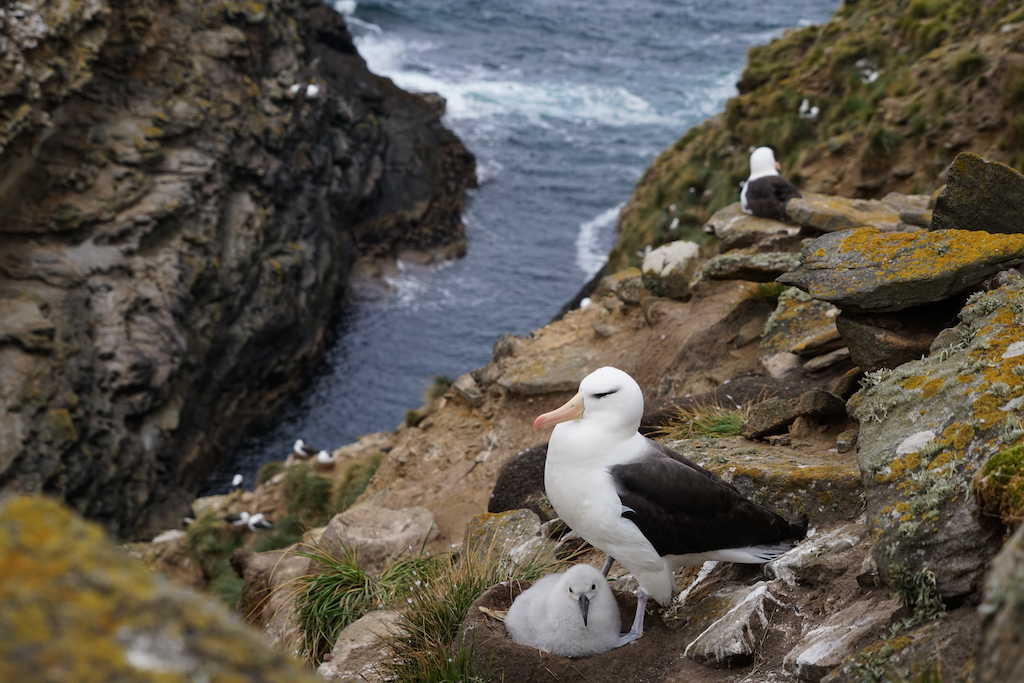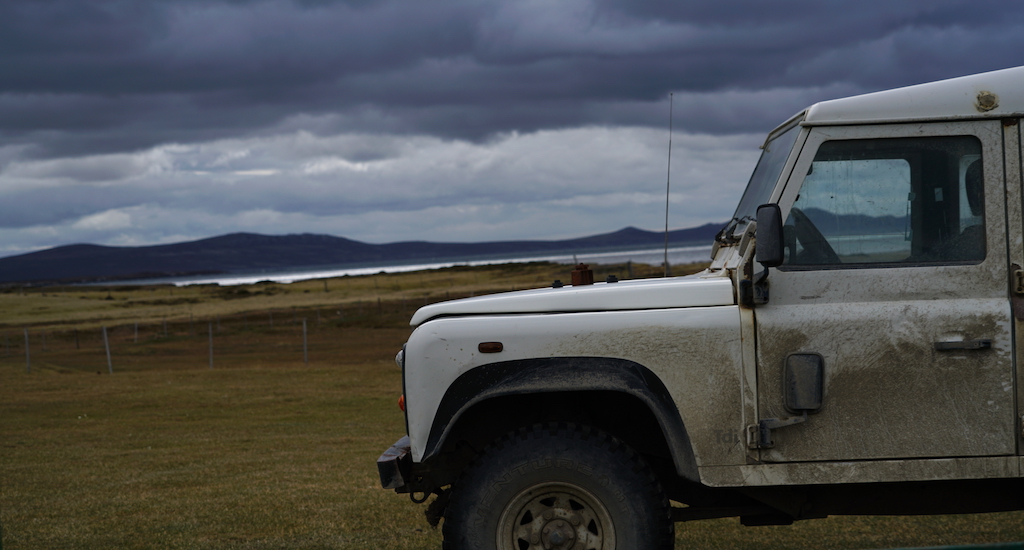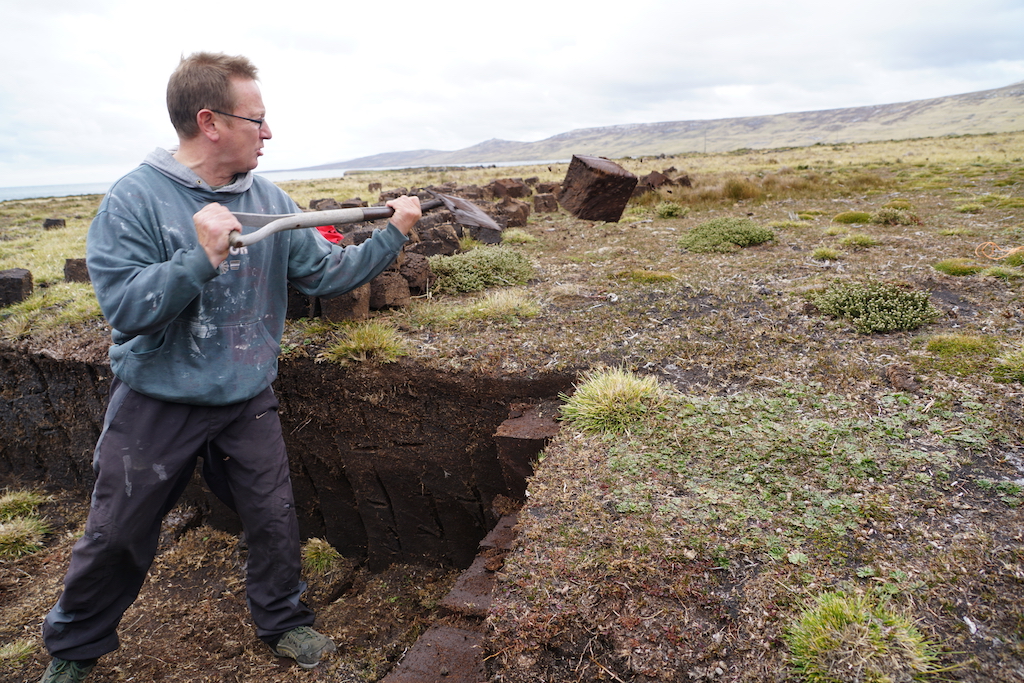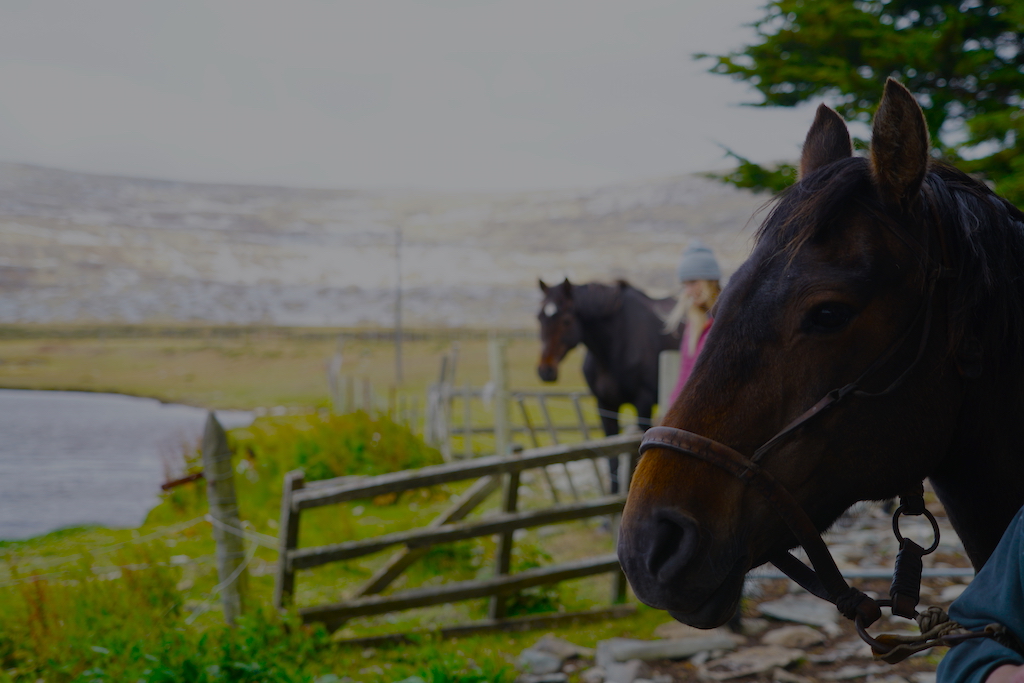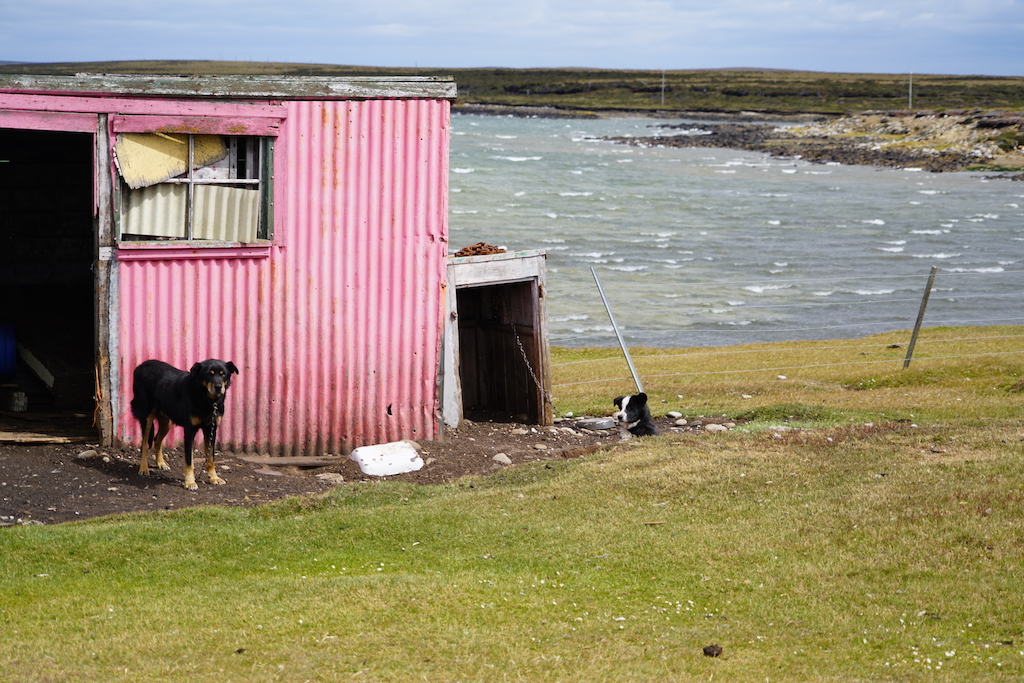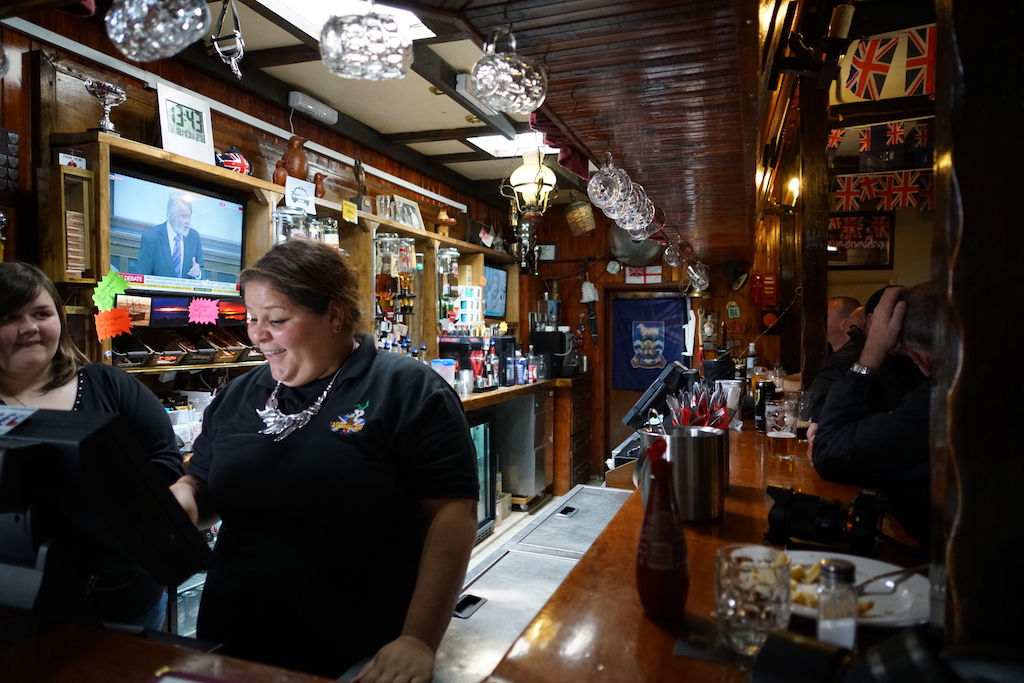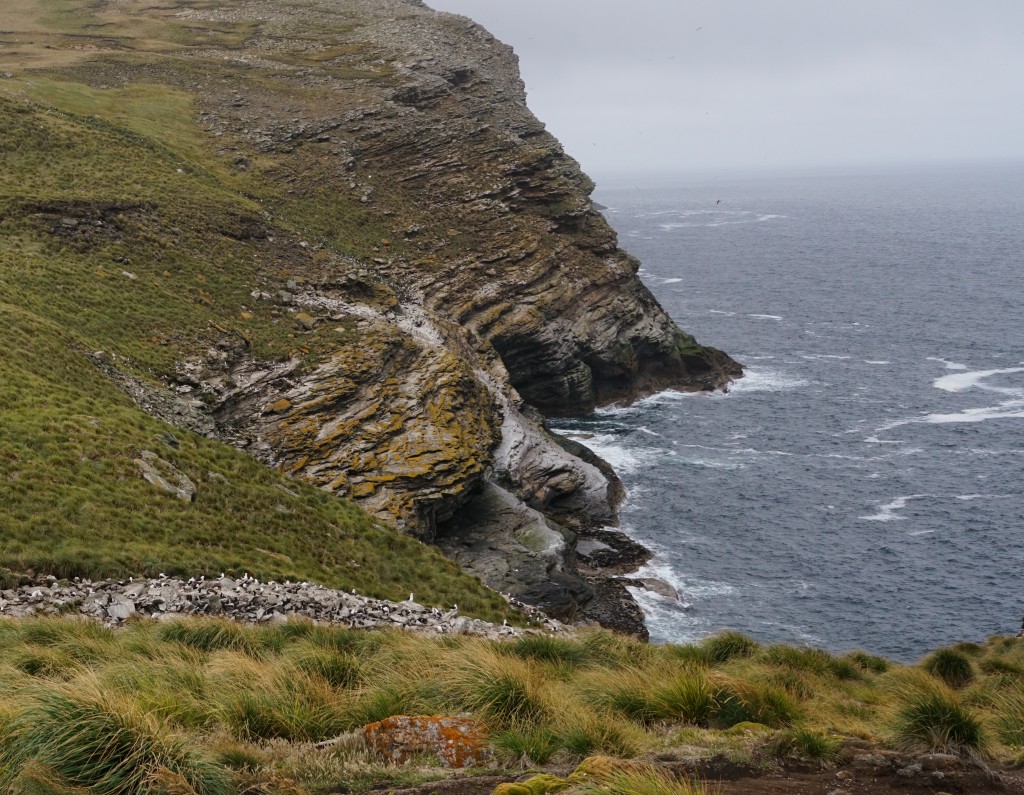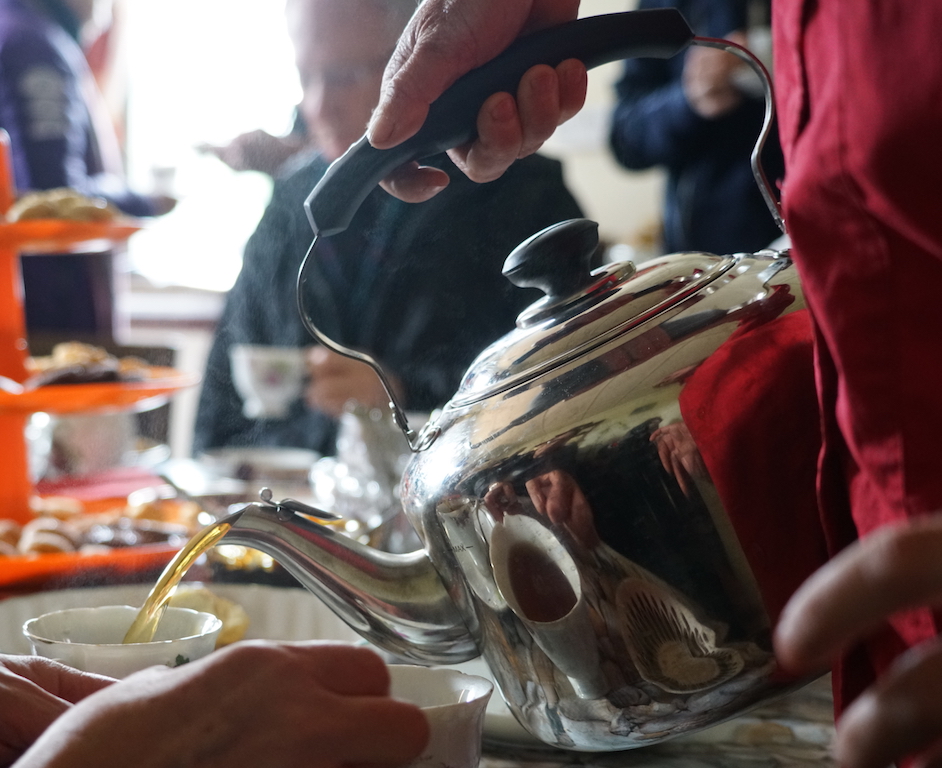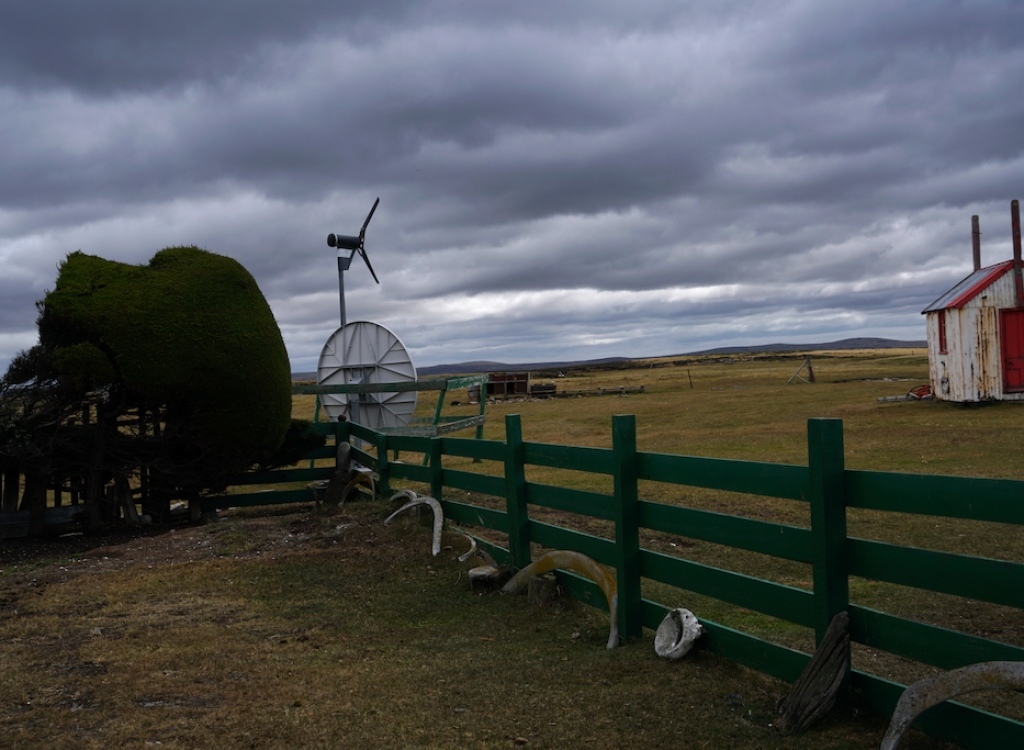51.68°S, 59.16°W
Dispatch: Falklands/Malvinas Islands
East Island
The tea table held a spread of pastries someone toiled to prepare. The Watsons, an elderly couple who own Long Island (seriously) Camp more than an hour in good weather driving to the nearest store, no doubt thought hard about using their flour and sugar for strangers. The couple or their son trek once a month to Port Stanley for supplies in the beat-up Range Rover.
Titled properties held by British nobles who never set foot on the place were subdivided into huge parcels, five acres per one sheep. Locals among the three thousand or so who call Falklands home, could purchase parcels from Lord Nobody and eke out an existence as sheep farmers. No trees grow here but sheep and scrub grasses seem to thrive on the vast hills. Peat bogs provide heating fuel making the place smell like McCourt’s Limerick.
Argentines at the Doorstep
Uruguayan and Argentine gauchos taught the English how to outfit and use horses to round up sheep. Two sheep collies sleep in a pink shed, the only thing that brightens the solemn landscape except for Mrs. Watson’s garden where lupine thrives. Joe, a neighbor from a place not visible from Long Island Farm, and his wife come to help. He’s written a book about how the Brits pummeled the Argentines in the three month 1982 war that Maggie Thatcher needed to boost her sinking popularity. Joe doesn’t mention the Falklands is the only British presence in the entire Southwestern hemisphere.
“We have nothing to do with Argentina. Nothing Argentine about this place.” Two Argentines still live here. Feelings ring strong about their neighbors to the East. Argentina allows one international flight on Saturday mornings to fly over their airspace to land in Chile. The flights require an overnight stay in Punta Arenas or Santiago before going on to another destination like Argentina. Sometimes the flights refuel in Rio Gallegos, Argentina but it is not clear that someone with a Falkland resident stamp in their British passport is allowed to disembark.
Port Stanley
Port Stanley, the capital, does look like a bit of England with pubs, tearooms and red telephone booths which must be mostly decorative now. Satellites and cell phones have taken over the job. The Watsons still have a ring-up phone hanging on the wall, where calls are placed through an operator. Before cell phones, entertainment for ranchers included a loudspeaker that would broadcast other’s telephone conversations throughout the house. Calls to the doctor were especially engaging. So much for isolation and privacy, these folks probably have less than people living on that other Long Island.
Ships do pull into the harbor at Port Stanley and fishermen drag their nets for varieties of squid. The Falklands succeed because they declared their rights to tax other fisherman in their waters, providing ample revenue for infrastructure like their palatial high school for two hundred students and funds to support college educations off the island. And oh yes, the British military base, essential for protection against another feared Argentine invasion. Duty tours are four months for British soldiers, anything longer would surely produce madness. Not much to do, but perhaps remove the land mines that remain thirty-four years after the most important event in their history.
West Island
On the West Island, the second of the two big islands that make up the archipelago, Kicki Ericson and Thies Matzen lease a house on the beach where they park their Wander III sailboat that took them around the world a couple of times. They anchor the thirty-foot boat beat up by ice floes and worse in the bay down the hill from the garden. Rusting anchors and boats less fortunate than their vessel fill the sandy beach. Kicki and Thies photograph and write about their travels throughout the southern ocean, South Georgia, and Antarctica. Isolation defines them, although Kicki seems thrilled to chat and pour tea complemented by her own baked goods. Her skills crafting Swedish butter cookies, cakes and tarts have the Brits dried and tasteless offerings beat, hands down. Neither the Watsons nor the Ericson-Matzens put out empanadas or dulce de leche on their tea buffet.
Kicki and Thies don’t need to walk far to find company. A two kilometer hoof over the hill to the windward side produces a view of one of the largest albatross nesting spots in the world. Black-browed albatross float on a steady wind and build their mud pot nests sharing the cliffs with rock hopper penguins. Satellite-connected television broadcasts can’t compete with the riveting show nature provides.
Argentina, Britain, international oil drillers are inconsequential to life on West Island. Soaring albatross rule heavens, land and sea, unchallenged.
